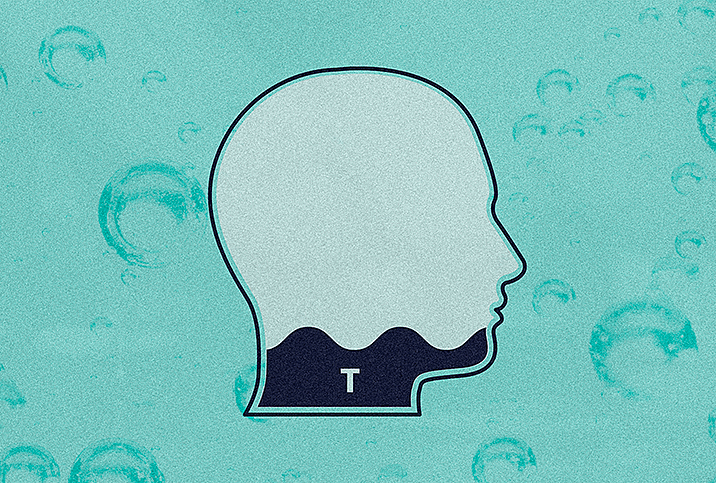Feeling stressed? Irritable? Frustrated? There might be a reason.
Most men don't know they experience hormonal fluctuations that resemble the rise and fall of estrogen levels during a woman's menstruation cycle. In men, the rise and fall of testosterone during the month can induce anxiety on some days.
Psychotherapist Dr. Jed Diamond didn't coin the term irritable male syndrome (IMS) to describe testosterone fluctuations in men, but he has taken the concept and developed it thoroughly. Researchers have learned how and when IMS has the biggest impact on men.
IMS explained
Diamond describes irritable male syndrome as "a state of hypersensitivity, frustration, anxiety and anger." The syndrome happens when testosterone levels fall, either naturally or due to external stress. When testosterone levels drop, the body's metabolism becomes slower, making some men feel exhausted, lazy and irritable. Low testosterone also contributes to anxiety, discouragement, anger and nervousness.
So, what causes testosterone levels to drop? For most men, testosterone fluctuates seasonally. During colder months, beginning in October, testosterone levels drop because the body perceives cold weather as a stress factor. When the body is stressed, it slows testosterone production.
Testosterone levels also rise and fall from one hour to the next. Highest in the morning, testosterone levels decline as the day goes on, especially for men younger than 40. When monitoring testosterone levels during a single hour, researchers found the levels fluctuate drastically, often driving the man's emotions during that hour.
Men older than 40 are most prone to IMS symptoms as they go through andropause, the male equivalent of menopause. (The Mayo Clinic has a perspective on how "male menopause" measures up against menopause in women.) During this phase, testosterone levels drop but don't recover. Andropause can lead to erectile dysfunction, loss of bone density, reduced libido, insomnia, depression and infertility.
How to manage IMS symptoms
IMS symptoms aren't always severe. However, for men who struggle with constant testosterone fluctuations, tracking symptoms can be helpful. Knowing what to expect and when to expect fluctuations can help men plan ahead. The moment a man begins to notice changes in his mood, he can take a deep breath and try to de-escalate the situation.
If IMS is seriously damaging a relationship, men should speak to their doctors about testosterone replacement therapy, which replaces testosterone with a synthetic variant, providing more stable hormone levels. However, it should be noted that side effects may include aggressiveness.
Other treatments include therapy, marriage counseling, exercise and diet changes, and the intensity of treatment required depends on the severity of the situation.
When to see a doctor for low-T
Many men struggle to know when they should look for solutions to low testosterone (low-T) and IMS. It's really all about personal tolerance: If your testosterone has dropped so much that it's affecting your sex life, self-esteem and personal relationships, it's time to talk with a doctor about possible solutions. One solution, testosterone replacement, must be done in a safe manner to avoid complications in other body systems, and requires close monitoring of the patient and blood levels.
It's important to note that low testosterone is a normal part of aging in men. Just because your sex drive is low doesn't mean you're abnormal—many thousands of men are in the same boat.
Always include your partner in all discussions of low-T, speak openly and work together to find a solution that works for your relationship.














